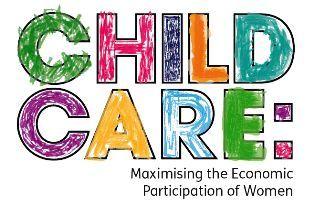 Despite an increase in the number of childcare places available since 1996, Northern Ireland has one of the lowest levels of childcare within the UK.
Despite an increase in the number of childcare places available since 1996, Northern Ireland has one of the lowest levels of childcare within the UK.
Research was undertaken for the Equality Commission by the Research Institute at Edinburgh Napier University to advise them on the type, extent and delivery of childcare in Northern Ireland.
The report sets out:
- the major types of childcare provision currently in existence in Northern Ireland and
- a vision for childcare provision that might help to contribute to the economic participation of mothers.
It also highlights that improvements to childcare provision in Northern Ireland are central to equality, economic prosperity, poverty reduction and other government aims.
Download the research - Maximising the economic participation of women:

The 32nd Monitoring Report presents an aggregated summary of the 3,879 valid monitoring returns received during 2021 from 105 public authorities and 3,474 private sector concerns. These returns were mostly received between 1st January and 31st December 2021, with a period of extension granted to some companies due to the Covid-19 pandemic.
This year’s report shows the Protestant community share of the monitored workforce was [50%] and the Roman Catholic community share was [50%]. Women made up (52.4%) of the monitored workforce, a slight drop by 0.5% from the previous year (52.94%).
In 2021, the Roman Catholic community composition of the monitored workforce was 1.1 pp lower than the broad approximation of Roman Catholics available for work. The Roman Catholic community composition of the monitored workforce once again approximates estimates of those available for work as taken from the Labour Force Survey.
For the thirteenth consecutive year, the Roman Catholic community [52.8%] comprised a greater proportion of
applicants than the Protestant community [47.2%].
In every year since 2006, members of the Roman Catholic community [52.7%] comprised a greater proportion of
appointees than did the Protestant community [47.3%]. In 2021, the Roman Catholic community share decreased by 0.7 percentage points from the previous year. Overall their share has increased by [7.9 pp] from [44.8%] in 2001.
In 2021, the Roman Catholic community [51.3%] comprised a greater proportion of
leavers than did the Protestant community [48.7%]. Overall, the Protestant community share of leavers has decreased by [7.1 pp] from [55.8%] in 2001.
Further information
Full details of the
32nd Fair Employment Monitoring report (2021) are available on our website
Working class Protestant boys underachieve in education
In 2007 our research indicated concerns about underachievement among working class pupils and in particular working class Protestant boys in their educational achievement.
A Question of Attitude (2018)

We asked respondents a series of 'social distance' questions to assess public attitudes towards ten equality groups. The scenarios explored how comfortable people felt with varying degrees of closeness to a member of a 'different' group. Respondents were asked whether they 'would mind' or 'would not mind' having a member of each group as a work colleague, a neighbour or if one of the group members were to marry a close relative.
Do You Mean Me? (2011)
 The Commission's equality awareness survey 'Do You Mean Me?' includes social attitudes in Northern Ireland on a number of equality grounds, including sex/gender.
The Commission's equality awareness survey 'Do You Mean Me?' includes social attitudes in Northern Ireland on a number of equality grounds, including sex/gender.